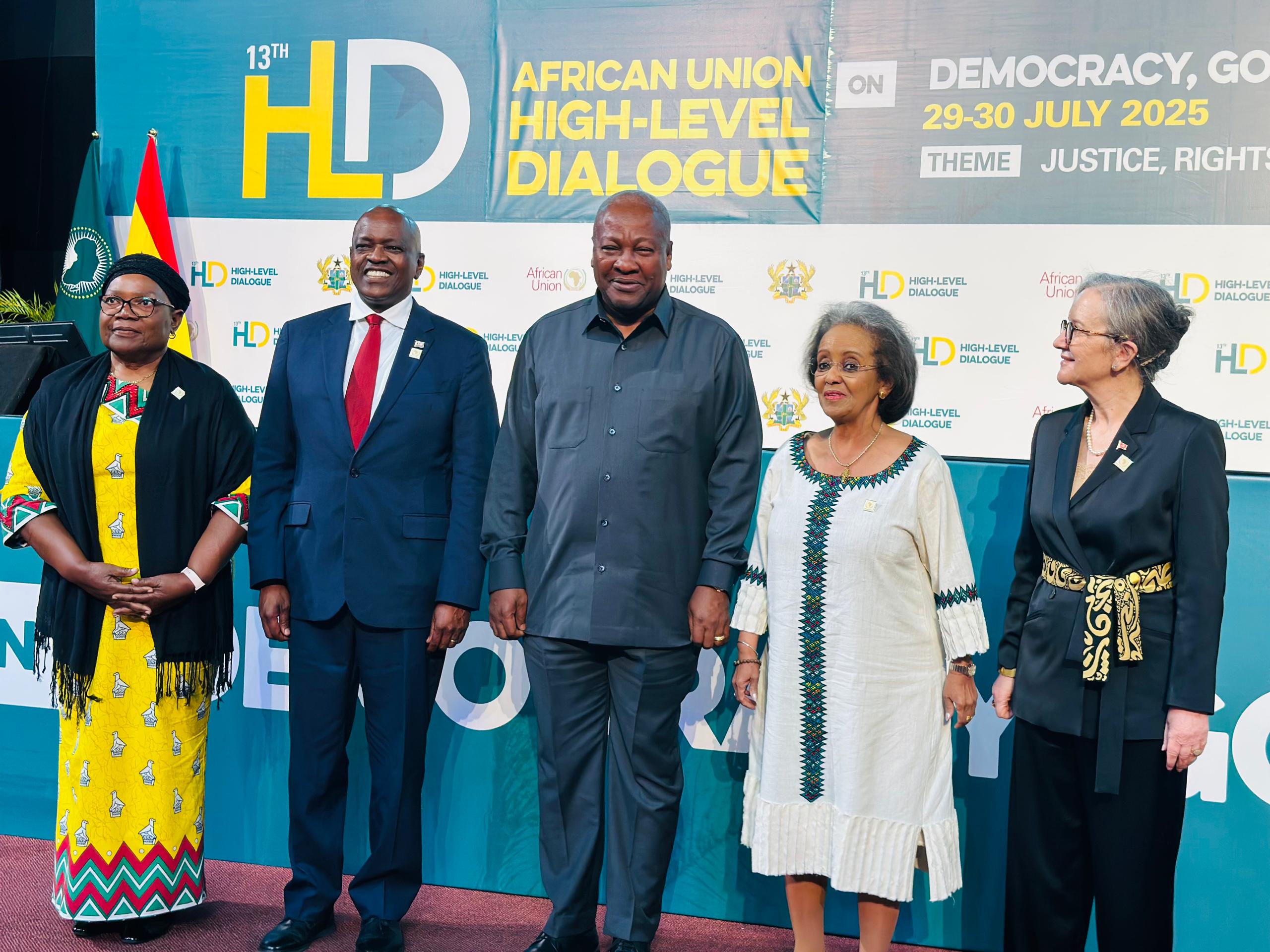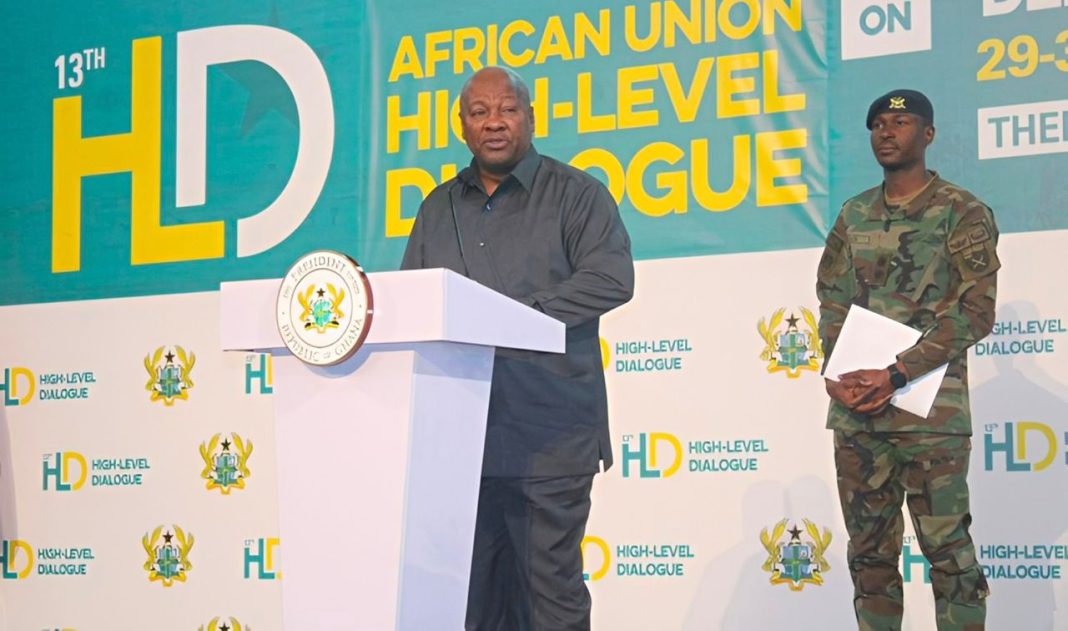By James Amoh Junior, GNA
Accra, July 29, GNA – President John Dramani Mahama has called on African leaders, institutions, and citizens to move beyond rhetoric and symbolic gestures and take bold, coordinated action to address the continent’s historical and systemic injustices.
The President emphasized that reparative justice must become a living mandate, not another declaration left on paper.
“We gather here not only to examine our painful past,” President Mahama said, “but to shape a different and better future for our continent, where African agency, sovereignty, and dignity are restored and respected.”
He was speaking at the official opening of the 13th African Union High-Level Dialogue on Democracy, Human Rights, and Governance in Accra.
The High-Level Dialogue, held on the theme “Justice, Rights, Reparations, and State Building,” is a flagship platform of the African Union.
It brings together AU member states, civil society, academia, and global partners to engage in critical policy reflection and forge consensus on the future of democratic governance and human rights on the continent.

President Mahama reminded participants that the wounds of slavery, colonialism, and systemic exploitation were not historical abstractions but active forces that continued to shape African realities today.
From arbitrary colonial borders to exclusionary governance structures and inequitable global economic systems, he noted that Africa’s challenges were rooted in historical injustice.
“For far too long, the architecture of African states has rested on foundations imposed during a colonial era that neither understood nor respected our histories, our cultures, or our aspirations,” he stated.
Ghana, he said, had always stood at the forefront of the Pan-African struggle for justice and unity, from the visionary leadership of Osagyefo Dr. Kwame Nkrumah to present-day advocacy for democratic consolidation and reparative justice.
But he warned that speeches and conferences alone were not enough, and that, “This dialogue cannot afford to become another ceremonial event filled with lofty speeches but void of action,” he cautioned.
President Mahama said, “Our citizens are watching and waiting. Our young people… are growing increasingly impatient. They demand fairness. They demand opportunity. And a stake in our continent’s future.”
He applauded the African Union Executive Council’s recent decision to extend the 2025 reparations theme into a full Decade of Reparations, from 2026 to 2036, and to establish two new institutional bodies: the AU Commission of Experts on Reparations and the AU Reference Group of Legal Experts on Reparations.
He described these developments as “critical milestones” but underscored the need for concrete implementation.
He stated, “We must now move swiftly to personalize these instruments,” he said. “We must empower these bodies with the resources, visibility, and mandate to lead us on this noble journey of truth, justice, and restitution.”
The President was unequivocal in calling for the protection of civic space across the continent, urging the African Union to take a firm stand in favour of legally binding frameworks that guaranteed the freedoms of assembly, speech, and participation.
“Democracy cannot thrive in the presence of fear or repression. The legitimacy of our governments depends on the inclusion of all our people. Governments must exist for all, and not just a few,” he said.
President Mahama stressed the role of civic and political education in state-building and called for its integration into national curricula and encouraged active public engagement through community dialogues and participatory platforms.


“Widespread civic disengagement is not simply a matter of apathy,” he noted. “It is often the result of exclusion, mistrust, and systemic failure.”
He challenged African institutions to make democracy not just institutional, but relational deeply rooted in the lives and experiences of ordinary citizens, stressing that “Democracy must speak a language our people understand and trust.”
President Mahama called on participants to make the Accra Dialogue a historic turning point, saying, “Let this not be merely a meeting of minds. But a moment of continental reawakening. Let us make this dialogue count. Let us not merely reflect, but let us act.”
Mr. Mahmoud Ali Youssouf, the Chairperson of the African Union Commission (AUC), called for a collective commitment by African leaders, institutions, and citizens to embrace and share a common vision for a peaceful, prosperous, and democratic continent.
“It is necessary that the vision for a prosperous, democratic, and peaceful Africa is shared,” he stated
The Commission Chairman said, “We must continue to aspire for a united, dignified, globally influential Africa. As we gather today, the fundamental truth is that justice, including reparative justice, peace, and stability, must be the cardinal principles, the cornerstones of our transformation.”
GNA
Edited by Christian Akorlie
